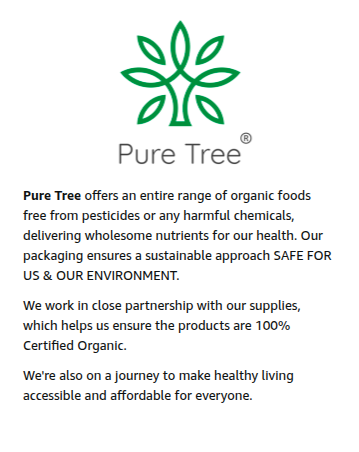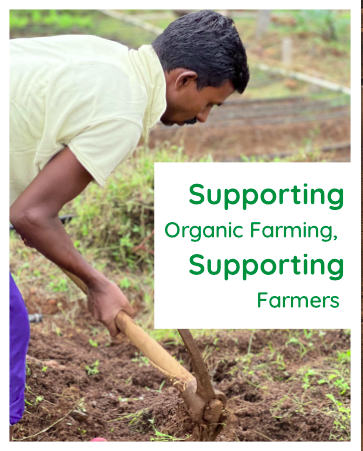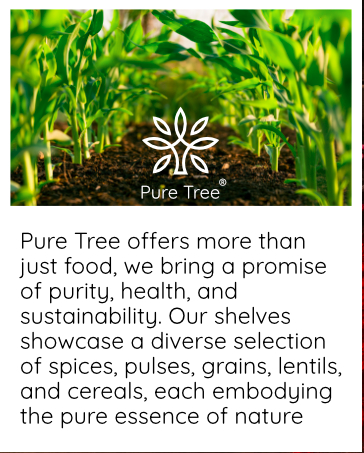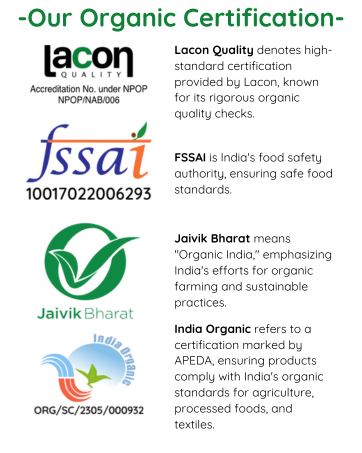Organic Bay Leaf | Tej Patta
India

- Usually shipped within 1 Business Day
- Orders placed before 3pm will be processed on the same day*
Guarantee safe & secure checkout
Special Offer Buy More Save More
3% off any 2, 4% off any 3, 5% off any 4




Additional Information ▼
| Brand Name | Pure Tree |
|---|---|
| Country of Origin | India |
| Specialty | 100% Certified Organic |
| Best Before | Check the packaging for the expiration date. |
| Manufacturer / Customer Care |
Infinite Online Shopping Pvt. Ltd. Gala No.38A, 3rd Floor, Lakshmi Industrial Estate, Shankar Rao Naram Path, Lower Parel, Mumbai 400013, Maharashtra, India. Customer Care: +91 900 405 8669 Email: care@puretreefoods.com |
FAQs
Look for the logos of Government bodies on the product labels, such as those from NPOP (National Program for Organic Production), Javik Bharat, Participatory Guarantee and also logos of certifying bodies such as Lacon, Bureau Veritas, Control union These labels indicate that the product has been certified as organic by a certifying bodies that audits and ensures the product meets organic standards.
Organic products are free from harmful chemicals and pesticides, which can have negative effects on your health and the environment. Additionally, organic farming practices promote soil and biodiversity conservation, reduce pollution, and promote sustainability.
While some organic products may be more expensive than their conventional counterparts, the price difference is often small and reflects the higher costs associated with producing organic products. In the long run, choosing organic can be more cost-effective due to the health and environmental benefits.
Yes! Organic farming practices promote biodiversity, soil health, and sustainability while reducing pollution and carbon emissions. Choosing organic products can help support these practices and protect the planet.









